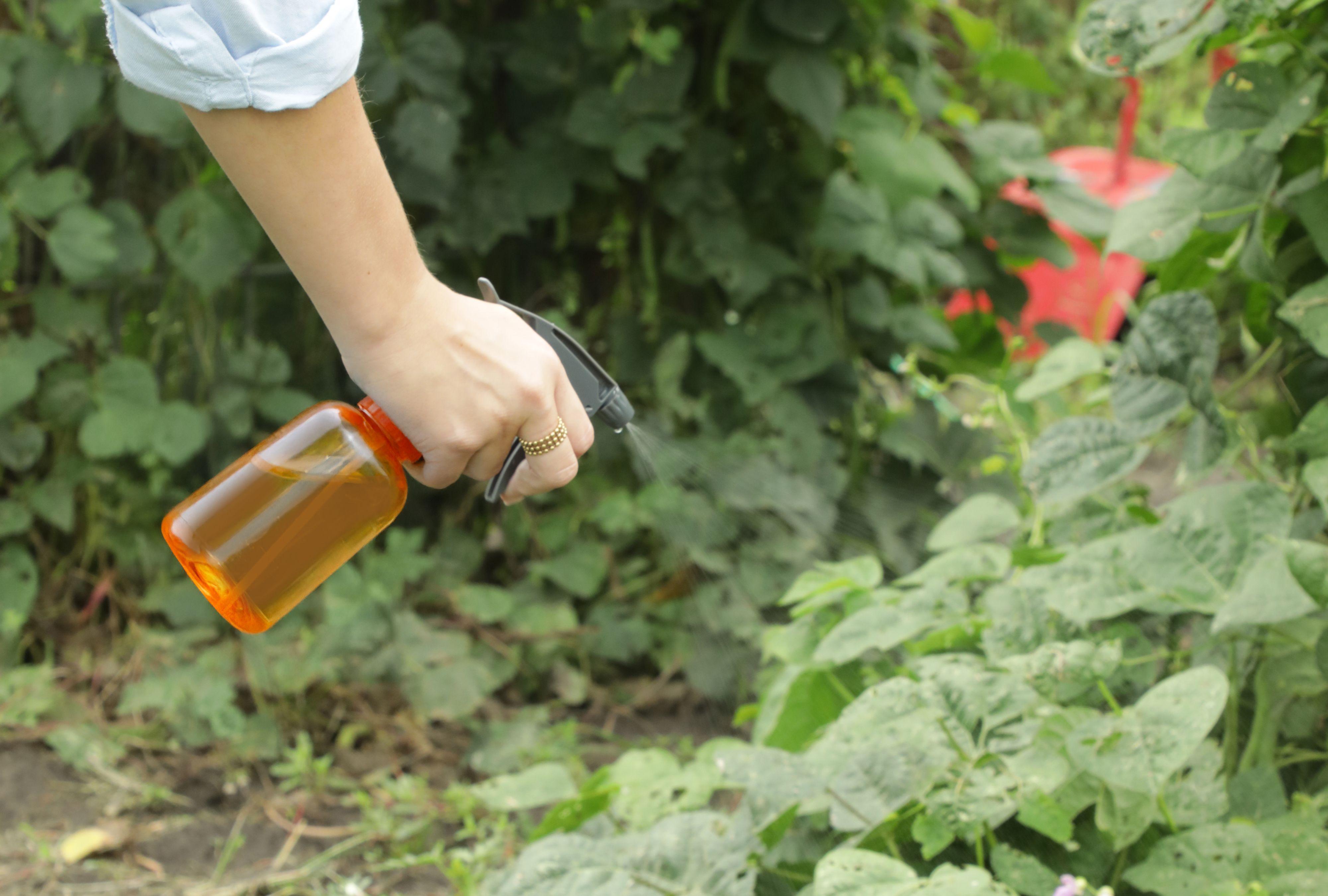Key Takeaways
- Apple cider vinegar is an effective, non-toxic way to combat garden problems and clean tools.
- It's important to apply apple cider vinegar in the correct concentrations.
- Apple cider vinegar solutions need to be reapplied regularly to be effective.
Many people rave about the health benefits and culinary uses of apple cider vinegar. But this pantry staple can work wonders in the garden, too. That's in large part because of its acetic acid, which is powerful enough to destroy weeds and ward off some common pests and problems. Plus, apple cider vinegar can be used in place of harsh chemicals, making it an eco-friendly garden option. But don't start spraying apple cider vinegar on every weed or bug you see just yet. Here's how to use it for maximum effectiveness, while keeping your plants safe.
1. Kill Weeds
Apple cider vinegar can be an effective weed killer. Some gardeners just mix equal parts apple cider vinegar and water, while others prefer a mix of 4 parts apple cider vinegar to 1 part salt, with a little dish soap mixed in. Spray the target weed, and the acetic acid in the vinegar will kill it off within hours.
The catch: This solution generally only works on small, young weeds, not tougher, well-established weeds. Also, only apply it to weeds that are in spots like driveway cracks, not to garden beds, as it can kill your plants as well.
2. Clean Tools
Apple cider vinegar has natural antimicrobial properties, making it a great option for sterilizing garden tools. (Clean garden tools are key to not spreading diseases between plants.) Just spray tools with a mix of equal parts water and apple cider vinegar or, for a deeper clean, soak them in the solution overnight.
3. Fight Fungi
Common fungal problems like powdery mildew on a variety of plants, as well as black spot on roses, can be curbed by apple cider vinegar. Combine 1-2 tablespoons of apple cider vinegar with a gallon of water, and spray on leaves once a week or so. This low concentration won't harm plants but it changes the pH on the leaf surface to be less favorable for fungi.
Related
4. Deter Pests and Critters
Some gardeners report success deterring rabbits and deer, along with aphids and ants, with the strong scent of apple cider vinegar. Just place rags that have been drenched in the stuff around beds you want to protect, regularly re-soaking them as the scent dissipates.
5. Control Snails and Slugs
The acetic acid in apple cider vinegar dries out snails and slugs, causing them to die. Spray a mix of equal parts apple cider vinegar and water around planting beds in the evening, since slugs and snails become more active at night. You will need to reapply periodically for this to be effective, particularly after rain.



